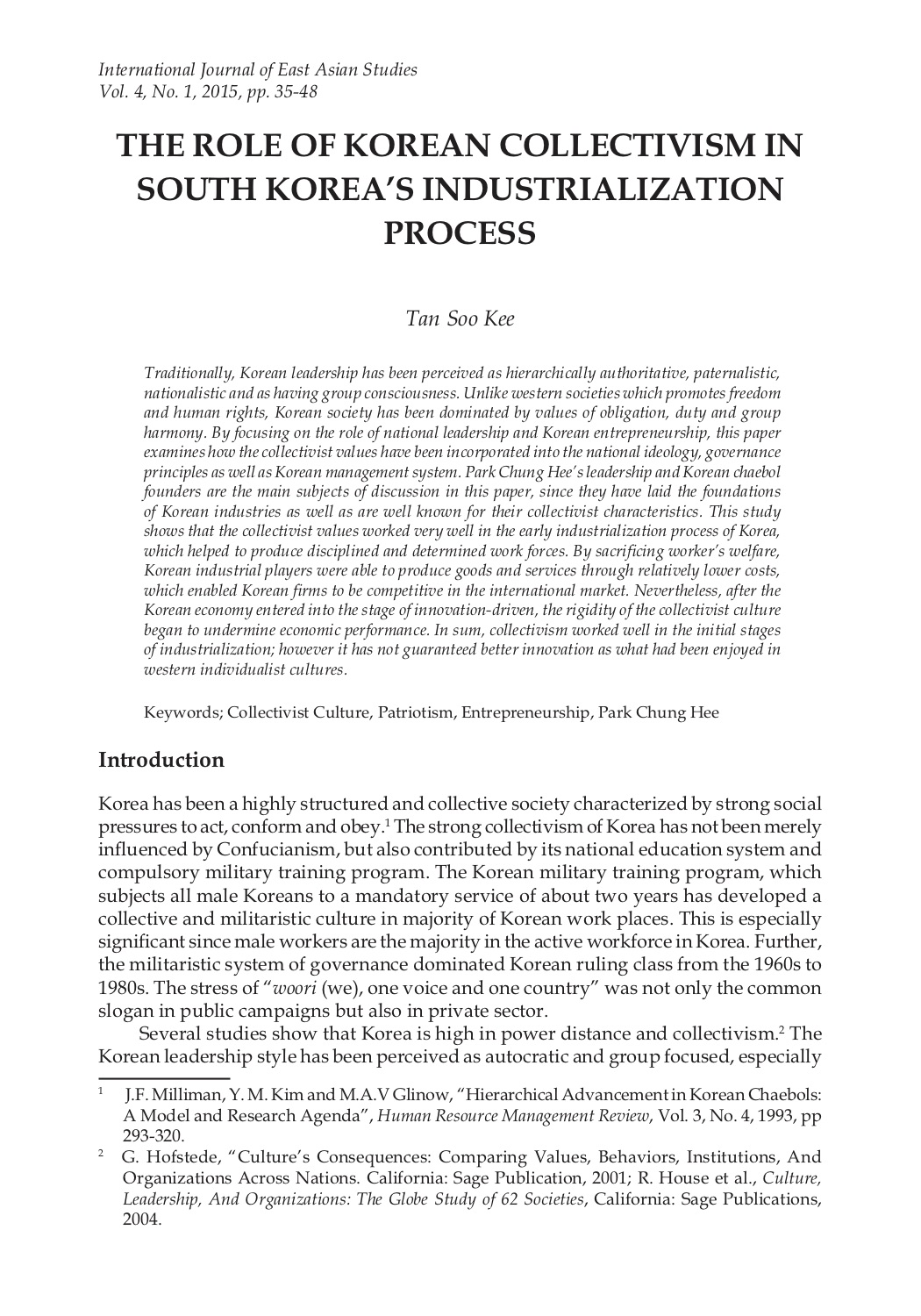The Role of Korean Collectivism in South Korea's Industrialization Process
Main Article Content
Abstract
Traditionally, Korean leadership has been perceived as hierarchically authoritative, paternalistic, nationalistic and as having group consciousness. Unlike western societies which promotes freedom and human rights, Korean society has been dominated by values of obligation, duty and group harmony. By focusing on the role of national leadership and Korean entrepreneurship, this paper examines how the collectivist values have been incorporated into the national ideology, governance principles as well as the Korean management system. Park Chung Hee’s leadership and Korean chaebol founders are the main subjects of discussion in this paper since they have laid the foundations of Korean industries as well as are well known for their collectivist characteristics. This study shows that the collectivist values worked very well in the early industrialization process of Korea, which helped to produce disciplined and determined workforces. Korean industrial players were able to produce goods and services through relatively lower costs, which enabled Korean firms to be competitive in the international market. Nevertheless, after the Korean economy entered into the stage of innovation-driven, the rigidity of the collectivist culture began to undermine economic performance. In sum, collectivism worked well in the initial stages of industrialization; however, it has not guaranteed better innovation as what had been enjoyed in western individualist cultures.
Downloads
Article Details
Copyright
Submission of a manuscript to the WILAYAH implies that the submitted work has not been published before (except as part of a thesis or report or abstract), that it is not under consideration for publication elsewhere; that all co-authors have approved its publication. The WILAYAH : International Journal of East Asian Studies adopts CC BY license. As such, we would be grateful if an acknowledgement accompanies the republication that the work was originally published in WILAYAH. The editors will ensure digital preservation of access to the journal content by the Journal depository section.
Disclaimer
Although the Department of East Asian Studies is the publisher of the WILAYAH : International Journal of East Asian Studies, the views presented in the WILAYAH are entirely those of the contributors and do not reflect the official stand of the Department of East Asian Studies. The Department does not hold itself responsible for the accuracy of any article published. Publisher and co-publishers assume no responsibility, nor by the editors for any injury and/or damage to persons or property as a result of any actual or alleged libellous statements, infringement of intellectual property or privacy rights, or products liability, whether resulting from negligence or otherwise, or from any use or operation of any ideas, instructions, procedures, products or methods contained in the material therein.

